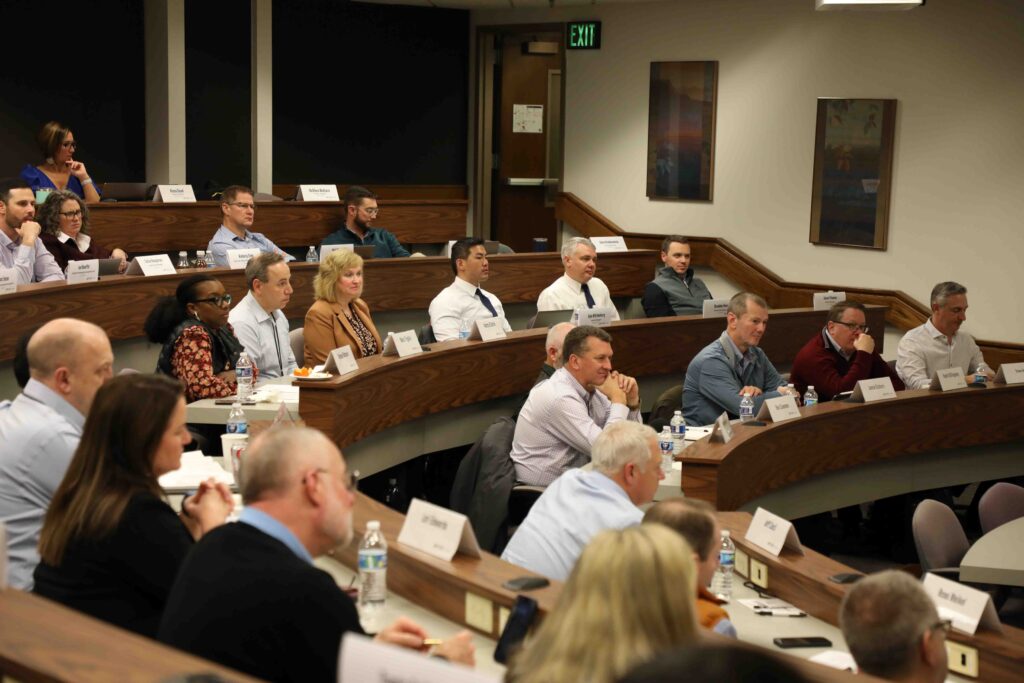 Adapting our leadership styles to both expected and unexpected disruptions happening around us is nothing new to the agri-food industry. However, 2020 has cast a great web of uncertainty across businesses, the industry and the world. How might leaders adapt to such significant transitions in order to maintain success?
Adapting our leadership styles to both expected and unexpected disruptions happening around us is nothing new to the agri-food industry. However, 2020 has cast a great web of uncertainty across businesses, the industry and the world. How might leaders adapt to such significant transitions in order to maintain success?
Betty Jones-Bliss, associate director for Purdue University’s Center for Food and Agricultural Business, recently had the opportunity to ask Dr. Joan Brett, associate professor of management and entrepreneurship at the W.P. Carey School of Business at Arizona State University, a few leadership-related questions in regard to the uncertainties 2020 has brought along.
Dr. Brett has consulted with many organizations on issues from leadership development, feedback and performance management to organizational change and structure. She has advised leaders of all levels in small businesses to Fortune 500 companies, assisting them in exploring ways to embrace organizational transitions, overcoming resistance to change and developing the skills needed for adaptive leadership. Dr. Brett is also a featured facilitator for the 2021 ARA Management Academy on January 26-28.
Jones-Bliss: Joan, as you work with businesses during this year of uncertainty, there have been significant organizational transitions, as well as the need for different ways of working. In your observation, how have companies responded to an environment of such change and uncertainty?
Brett: Rather than respond with new approaches to quickly enact, many successful companies first identified what they needed to let go of in their workflows, processes, systems or even in their culture and leadership practices. Let’s consider the engrained assumptions, behaviors and interactions that are the foundation of your company culture. Are these still critical in the new business reality? Will these longstanding assumptions and behaviors allow you to address the challenges ahead? Don’t discard the values on which your culture is based, just consider how these values can be enacted in different ways. Consider what new approaches will reinforce the values that have served your company for decades. Companies that have aligned new approaches with existing cultural values found it easier to meet the new challenges and uncertain environment.
Jones-Bliss: What are your top two ideas for leaders and managers as they adapt their approach to meet this year’s challenges?
Brett: The first would be to understand the importance of engaging your workforce in the challenges and potential changes ahead. So often, leaders attempt to enact new approaches without seeking to understand employees’ different perspectives on these changes. Engagement means allowing discomfort and disequilibrium of ideas to surface. This is uncomfortable for leaders and requires resisting the urge to control the conversation and silence dissidents. Consider: What is this person really talking about? What are we missing by not considering this? Use their resistance to inform the adoption of the new approaches.
The second idea would be to remove barriers and structures and alter processes or systems to align with the changes. When you seek to understand why staff perceive a disconnect between changes and the existing work practices, processes or systems, you gain insight into other adjustments that are needed to make the new approach work. Often, their resistance saves you from future problems.
Jones-Bliss: As leaders are planning for 2021, can you leave us with a thought or two about what it will take to continue embracing change and encouraging organizations to be agile?
Brett: As leaders plan for the challenges and uncertainties of 2021, it is critical to take the time to reflect on how your leadership behaviors will serve or hinder you in the new environment. What leadership behaviors that fostered your success in the past may hinder it in new environment? How can you demonstrate more agility, tolerance for ambiguity or risk taking? How can you model the behaviors you want your employees to embrace in dealing with the challenges of 2021? Taking the time to answer these questions will plant the seeds for your success in the new year.
Learn more about embracing organizational transitions, overcoming resistance to change and developing the skills needed for adaptive leadership from Dr. Brett at the 2021 ARA Management Academy. Additional faculty from Arizona State University and Purdue University will be presenting on other topics such as marketplace trends, thinking strategically, examining your organization’s profitability, creating value for your customers, service excellence and blueprinting. In the interest of safety and to eliminate the need for participant travel, the academy will be held completely online January 26-28, 2021. Register now to reserve your seat!



